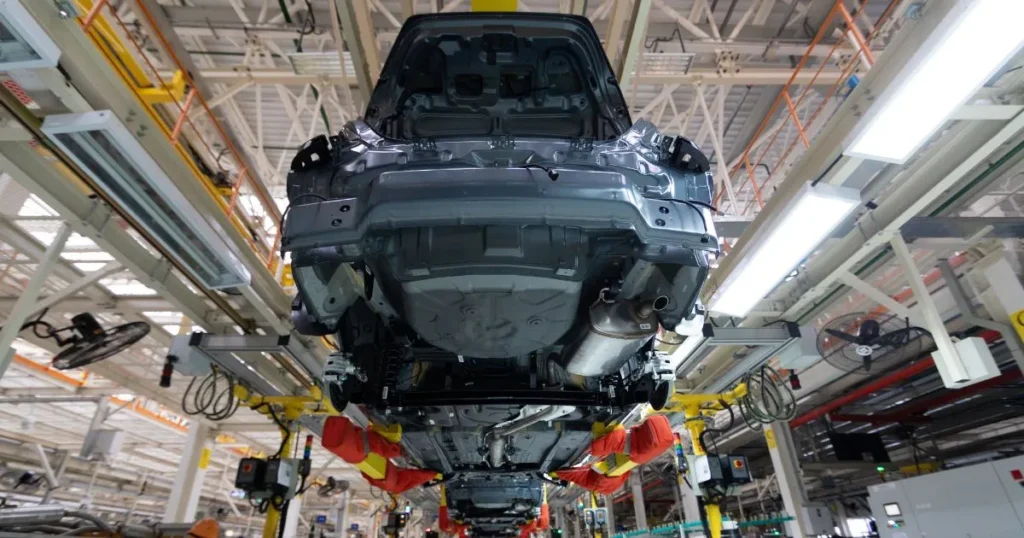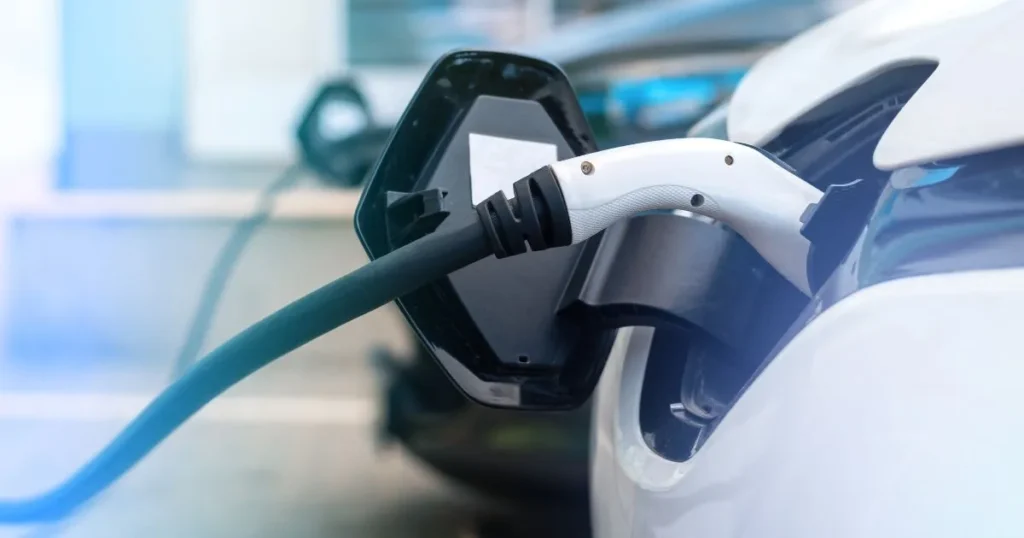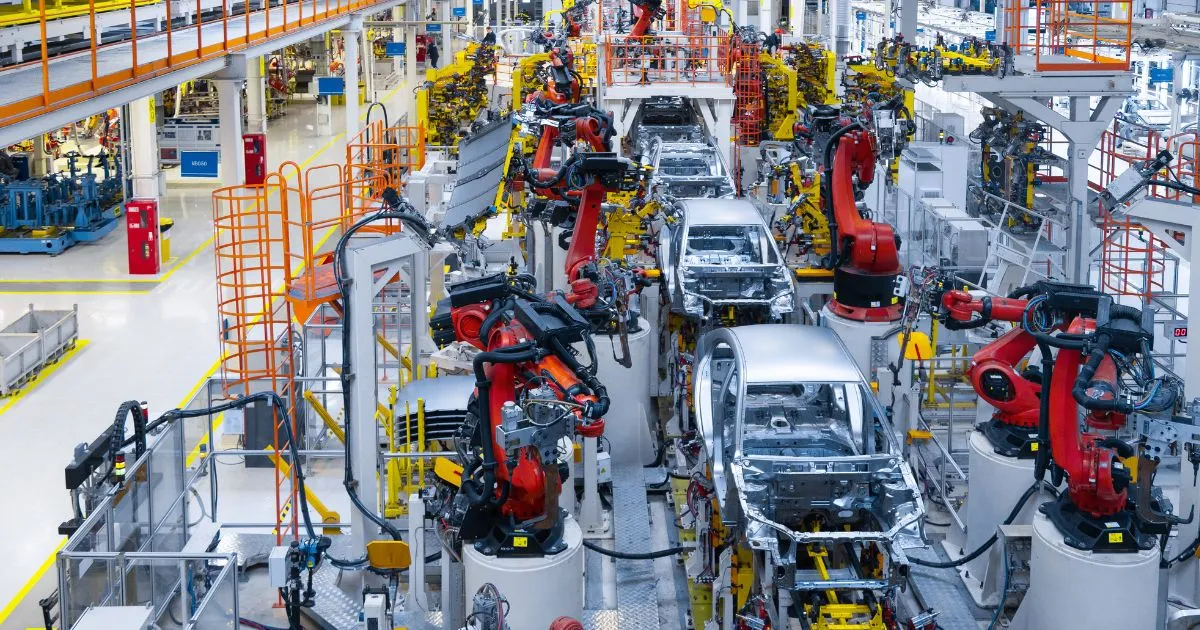Table of Contents
As I enjoy my morning coffee, I think about the fast-changing automotive world. It’s amazing how quickly the industry has grown. We see new car makers, huge production numbers, and big market values every day. But, one question keeps popping up: who’s really leading this huge industry?
The global car industry is complex, with many companies trying to be the best. Giants like Toyota and Volkswagen are up against new stars like Tesla and BYD. Competition for customers’ attention and spending is intense. Looking at the numbers, I see how big and varied this world is. It shows us how different success can look in the car world.
Global Automotive Production Leaders
A few key players lead the global automotive industry. They show off their tech skills and making know-how. Leading the way: Toyota, Volkswagen, and Hyundai Motor Group. Driving growth and innovation in the automotive industry.
Toyota’s Dominance in Vehicle Manufacturing
Toyota, the Japanese giant, is the world’s biggest car maker. In 2023, it produced 10,307,395 units. This shows its quality, reliability, and tech leadership.
Toyota offers a wide range of cars, from small ones to SUVs and hybrids. This variety makes it a favorite worldwide.
Volkswagen Group’s Global Reach
Volkswagen Group, from Germany, is close behind Toyota. It has famous brands like Volkswagen, Audi, Skoda, and Porsche. In 2023, it made 9,239,575 cars, showing its wide reach and making skills.
Hyundai Motor Group’s Rising Influence
Hyundai Motor Group, featuring Hyundai, Kia, and Genesis, is now a major player. In 2023, it sold 7,302,451 cars. This shows its growing power and competition globally.
Hyundai and Kia focus on new designs, efficient engines, and putting customers first. This has helped them succeed at home and abroad.
These top car makers are changing the industry. They push for new tech, better making, and meet changing customer needs all over the world.
“The automotive industry is undergoing a transformative era, and these global leaders are at the forefront, driving the future of mobility.”

Understanding Market Capitalization in the Automotive Industry
Market capitalization gives us a special look at the automotive industry. By October 2024, the top players are clear. Each has its own market share and investor trust.
With a market cap of $768.82 billion, Tesla stands at the forefront. This shows how much investors love electric cars. Toyota, a big name in cars, follows with $233.36 billion.
BYD, a Chinese electric car maker, is third with $121.74 billion. This highlights the growing power of Asian car makers and the move towards green cars.
| Company | Market Capitalization (in billions) |
|---|---|
| Tesla | $768.82 |
| Toyota | $233.36 |
| BYD | $121.74 |
| BMW | $54.37 |
| Volkswagen | $50.14 |
The changing market caps show the industry’s shift. Investors now value companies that focus on electric cars and have a clear plan for the future.
“The automotive industry is transforming rapidly, with market capitalization now key to identifying industry leaders and future trends.”
Electric Vehicle Manufacturers Reshaping the Industry
The car industry is changing fast, with electric vehicles leading the way. People want green cars, and rules are pushing for them. New companies are popping up to meet this demand.
Tesla’s Revolutionary Impact
Tesla has changed the game. In 2023, they sold 1,808,581 electric cars, becoming the top seller. Their cool designs and tech have set a new standard, making others try to keep up.
BYD’s Emergence as a Global Competitor
BYD, a Chinese company, sold 3 million electric cars in 2023. Their affordable, quality electric cars have won fans all over. This has made other car makers think about changing their ways.
Traditional Manufacturers’ EV Transition
Old car makers like Volkswagen and General Motors are now focusing on electric cars. They know they need to change to keep up with the times. This move is key for a cleaner future, thanks to green rules and perks.
The car world is at a turning point, with electric cars leading the way. As companies keep improving, the future looks bright and green.
| Manufacturer | EV Sales in 2023 | Market Share |
|---|---|---|
| Tesla | 1,808,581 | 35% |
| BYD | 3,000,000 | 28% |
| Volkswagen Group | 800,000 | 12% |
| General Motors | 550,000 | 8% |

“Electric vehicle sales are surging, driving market dominance and fueling innovation in eco-friendly transportation.”
Regional Distribution of Vehicle Production
The global car industry is complex, with car making spread across many regions. Asia, Europe, and North America are dominant players in the production. But, where cars are made also depends on labor costs, market needs, and government rules.
In 2021, China led the world in car making, producing over 26 million units. Its strong factories, government support, and big market helped it reach the top. Japan and Germany, known for their car brands, came next, making 9.7 million and 5.5 million cars, respectively.
The United States is a big name in the car world, making 10.1 million cars in 2021. Places like Michigan, Ohio, and Tennessee are car-making centers. They boast numerous factories and a highly skilled workforce.
| Country | Vehicle Production (2021) |
|---|---|
| China | 26.1 million units |
| Japan | 9.7 million units |
| Germany | 5.5 million units |
| United States | 10.1 million units |
The global supply networks that help the automotive industry are also complex. Parts and components come from all over and are put together in factories around the world. This shows how important good logistics and supply chain management are. They help get cars to people on time and reliably.
The Evolution of the Automotive Industry
The automotive industry has changed a lot since Ford started mass production. Now, we see electric cars and autonomous driving technology. These changes meet what people want and the world’s needs.
Historical Development
In the early 20th century, the U.S. led the automotive industry with mass production. Later, Western Europe and Japan became big players. By the 20th century’s start, German, French, British, Italian, and American companies were key in the automotive industry.
Contemporary Trends
Now, the automotive industry is moving towards more connected cars, shared rides, and green options. Electric vehicles (EVs) are becoming popular, thanks to Tesla and others like BYD. Old car makers are also starting to make EVs to keep up with the demand for green cars.
Future Projections
The automotive industry will likely grow more with EVs and autonomous driving. It’s expected to hit $4.6 trillion in revenue by 2025. By 2030, electric cars might make up 32% of all new car sales worldwide.
“The automotive industry is one of the world’s largest industries by revenue, accounting for a significant percentage ranging from 16% in countries like France to as high as 40% in nations such as Slovakia.”
Key Factors Driving Industry Growth
The automotive industry is changing fast. Technological advancements, changing consumer preferences, and environmental regulations are key. They are pushing the industry forward, as makers try to meet new market needs.
Electric Vehicle (EV) Technology: The growth of electric vehicles is a big change. Big car companies are spending a lot on EVs. People want EVs for their green benefits and cool tech.
Autonomous Driving Systems: Autonomous driving technology is also a big factor. New tech like sensors and AI is making self-driving cars a reality. This is changing how we drive.
Connected Car Features: The connected car trend is growing too. Cars now have cool features like infotainment systems and traffic updates. These features make driving more connected and convenient.
These tech advancements, along with changing tastes and green rules, will shape the future of cars. They play a vital role in the industry’s growth.
Manufacturing Capacity and Supply Chain Management
The global car industry is a big network of factories and supply chains. Big car makers have plants all over the world. For example, Toyota has sites in over 28 countries. Volkswagen Group has 120 plants worldwide, showing how big the industry is.
At the center of this big operation is a complex supply chain. Parts and components come from many countries to make cars. Managing this global network is key to success in the car industry. Any problems can affect many parts of the industry.
Production Facilities Worldwide
Car makers have plants all over the world. They choose locations for low costs, to be close to markets, and for access to special skills and resources. This network helps them make more cars and meet changing demand.
Global Supply Networks
Keeping a strong and flexible supply chain is crucial for making cars. Car makers must manage the flow of parts and materials across borders. They often use just-in-time delivery to stay efficient. The COVID-19 pandemic showed how important it is to have diverse and local supply chains to avoid problems.
Quality Control Standards
Car safety and quality standards are very high in the industry. Car makers test and check their cars carefully. They make sure their cars meet rules and customer needs. Quality is a big focus in the global car industry.
| Key Automotive Manufacturing Statistics | Figures |
|---|---|
| Toyota’s global production facilities | Over 28 countries |
| Volkswagen Group’s production sites worldwide | 120 facilities |
| Shortage of vehicle parts during COVID-19 lockdowns | 1.7 million parts |
| Projected increase in lithium demand by 2030 | Almost triple |
| Companies planning re-shoring or near-shoring in Europe | 86% in Germany, 74% in Europe |
Technology and Innovation Leadership
The automotive industry is changing fast, thanks to automotive technology, electric vehicles, and autonomous driving. Companies like Tesla are leading the way in these areas. They are shaping the future of cars.
Tesla is a leader in electric vehicles. It has transformed our perspective on cars. With its cool designs and battery tech, Tesla has made other car makers rethink their plans.
BYD, a Chinese company, is also making waves in electric vehicles. It’s known for its battery tech and solutions. This has made BYD a big player in the EV world.
Even though Tesla and BYD are changing things, old car makers are not slowing down. Companies like Volkswagen, General Motors, and Toyota are spending a lot on automotive technology. They aim to stay ahead of emerging trends.
The race for the best technology is getting fiercer. Car makers are using advanced autonomous driving tech. This tech uses artificial intelligence and machine learning to make cars safer and more efficient.
Innovation and leadership in automotive technology are key for companies to stay ahead. The future of cars is being shaped by those who use technology to lead the way.
| Company | Focus Area | Key Innovations |
|---|---|---|
| Tesla | Electric Vehicles | Pioneering battery technology, integrated design, and over-the-air software updates |
| BYD | Electric Vehicles | Advancements in battery chemistry, integrated energy solutions, and global expansion |
| Volkswagen | Automotive Technology | Investments in software development, artificial intelligence, and electrification |
| General Motors | Autonomous Driving | Development of advanced driver assistance systems and self-driving car technology |
The car industry is always changing, and being innovative is key. Companies that lead in automotive technology will stay ahead. The future of cars is being shaped by those who use technology to lead the way.
Sustainability and Environmental Impact
The car industry is leading the way in sustainability. Companies are working hard to cut down their environmental impact and follow new emissions rules. Big names like Volkswagen and Volvo are setting big goals to go fully electric and carbon neutral.
But it’s not just about electric cars. The industry is also looking into hybrid tech, circular economy, and green materials. They want to make cars better for the planet from start to finish. Things like regenerative braking and digital changes are part of this effort to use resources wisely.
Yet, the industry has to deal with the cost of going green. People want cars that are good for the planet, and companies need to meet these demands. They must follow new rules and stay competitive at the same time.
FAQ
Who has the biggest automotive industry?
The world’s automotive industry is led by a few big names. Toyota tops the list, producing over 10 million vehicles every year. Volkswagen Group and Hyundai Motor Group are close behind.
What are the global automotive production leaders?
Toyota is the global leader in vehicle production. In 2023, they sold 10,307,395 units. Volkswagen Group and Hyundai Motor Group come next, with 9,239,575 and 7,302,451 units sold, respectively.
How do market capitalization values differ from production numbers?
Market capitalization shows a different picture. Tesla leads with a value of $768.82 billion. Toyota follows with $233.36 billion. This highlights investor confidence in electric vehicles and their future market potential.
Who are the leading electric vehicle manufacturers?
Tesla is the top EV maker, selling 1,808,581 units in 2023. BYD, a Chinese company, sold 3 million units, showing fast growth. Volkswagen and General Motors are also moving towards electric vehicles, investing heavily in this technology.
Where is vehicle production distributed globally?
Vehicle production is spread across the globe. Asia, Europe, and North America are key contributors. Japan, Germany, China, and the United States are key production centers, influenced by labor costs, market demand, and government policies.
How has the automotive industry evolved over time?
The industry has changed a lot. It started with Ford’s mass production and now focuses on electric and autonomous cars. Today, we see more connected cars, shared mobility, and a push for sustainability. The future looks bright for electric cars and autonomous driving.
What are the key factors driving industry growth?
Growth is driven by new tech, changing consumer wants, and green rules. Electric cars, self-driving tech, and connected cars are key innovations. These changes are driven by the need for cleaner, more efficient vehicles.
How do major manufacturers manage their production capacity and supply chains?
Big manufacturers have plants all over the world. Toyota has over 28 countries with plants, and Volkswagen Group has 120 sites. They rely on global supply chains for efficient production and follow strict quality standards.
Who are the technology leaders in the automotive industry?
Leading in tech is crucial. Tesla leads in electric and self-driving technology. Other companies are investing in research to keep up. The focus is on better batteries, AI for self-driving, and advanced safety features.
How is the automotive industry addressing sustainability?
Sustainability is a big deal. Companies are making more fuel-efficient cars and moving to electric power. They’re also working on clean tech and sustainable practices to lessen their environmental impact.

